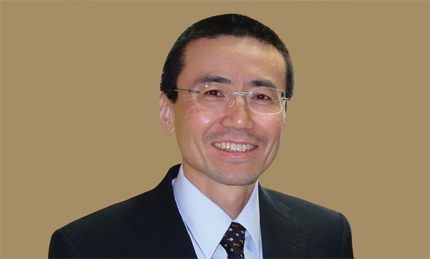Nobutaka Kitajima, CIO, Equity, LIC Nomura Mutual Fund talks about what it takes to be a fund manager, his favorite book and more.
What is the most exciting thing about your job?
It is interesting to learn about new businesses. I get to read and understand investor psychology and how investors react to news. You have to think about these aspects while managing money. Investors react differently. A pension fund manager may react to the same news differently than a mutual fund manager. So, reading the psychology of different type of investors is exciting.

How did you go about understanding the Indian markets?
As a foreigner I had to understand the culture and history of India. I read a lot of books about India’s history. Also, I met with the management of a lot of companies. Japanese managements tend to be very conservative while speaking to their investors/shareholders. But the managements in Hong Kong and China are very aggressive in speaking about the prospects of their companies. It is important to observe the behavior of management. You have to ascertain what you can actually expect from the forecast made by the management.
How would you describe your investment process and philosophy?
We stay in good companies for long term. We tend to avoid buying overpriced stocks. A lot of focus is assigned to quality and valuations. We don’t churn our portfolios very often. That’s the best way to generate long term returns.
What changes in investment management process did you bring about after you took over as CIO?
We have institutionalized our investment processes. Our starting point is screening and short listing stocks. Then we discuss these stocks in detail with our investment management team. Then we construct portfolios. These processes were always there but I started putting a lot of emphasis on sticking to basics. You need to enforce the discipline. If you have traffic signals and nobody follows them then they are of no use. Similarly, investment is about having discipline. We follow certain screening methodologies at regular interval. If you follow discipline the results will follow.
How important is the role of luck in investing?
Luck only follows hard work. You have to get the basics right. Everything else will take care of itself. Though I do believe myself as a lucky guy. For most part of my career as a fund manager my investors have made money through me. I hope this luck follows me in India.
Do you plan to launch any of your overseas funds in India?
Currently India looks like an exciting market. Japan may still be an opportunity. Many fund houses are launching Europe funds now. Maybe they should have been launched a year back. Yes, we will launch overseas funds if we see an investment opportunity.
What is your reading of the current state of Indian economy?
We have a cautious view on the economy. The Indian economy looks like in a typical stagflation state. Big infrastructure projects are not taking off. We will stick with export oriented sectors like pharmaceutical and IT. We should wait till the elections get over.
What are the qualities that you feel a good fund manager should have?
Fund managers should read between the lines. They should always read the fine print. Sometimes a fund manager has to be cynical and not take anything on its face value.
Have you invested your own money in Indian markets?
I have investments in Asia (excluding Japan) funds. As a foreigner I have certain restrictions to invest in India.
One book which you would recommend to all investment professionals?
I was inspired by a book called ‘One Up on Wall Street’ written by Peter Lynch. It talks about analyzing the markets, reading annual report, cutting losses, etc. It talks about simplicity of investment argument. Even a ten year old should understand your investment argument.






